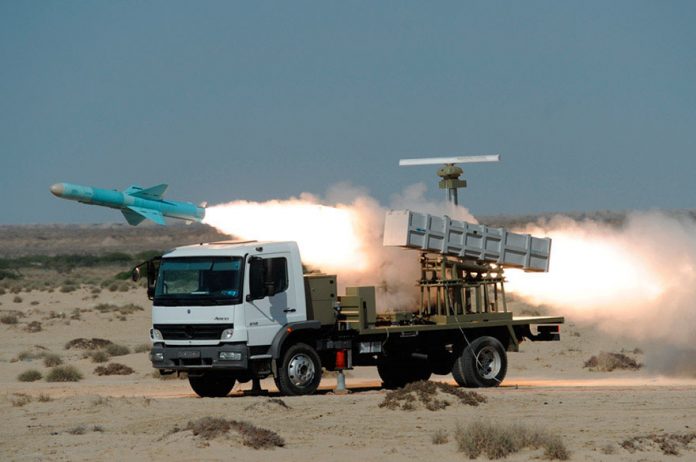Ordered by President Trump, the targeted killing of Qassem Soleimani electrifies the Middle East. The Leader of the al-Quds Force, the elite unit of the Iranian Revolutionary Guards, was the architect of Iranian power in the Middle East. General Soleimani was behind the Shiite militias in Iraq and the deployment of Iranian forces to Syria that held Bachar al-Assad in power. Soleimani was also a pivotal logistical and financial supporter for Lebanese Hezbollah.
European powers, namely France, Germany and Britain have played an important role in the implementation of the Vienna agreement on Iran’s nuclear programme – Joint Comprehensive Plan of Action – to which the United States was a signatory. Yet, since the election of Donald Trump in the American presidential elections of 2016, the current president of the U.S. has sought to pursue a coercive policy towards Iran by leaving the JCPOA and reinstating economic sanctions against the Islamic Republic. Since then, Iran and its Shia allies have increased their hostility towards the U.S and its allies of the Middle East by shooting down an American drone, attacking Saudi oil sites, and recently attacking military bases housing American soldiers in response to the assassination of General Soleimani. Thus, the death of the Iranian General, who was particularly close to Ayatollah Khamenei, Supreme Leader of the Islamic Republic, electrifies considerably tensions between Washington and Teheran.
European powers call for de-escalation
In the response to rising tensions in the Middle East, the leaders of France, Germany and Britain published a joint statement highlighting the importance of appeasing tensions between Washington and Teheran. The head of German diplomacy, Heiko Mass, had stressed to the U.S. Secretary of State Mike Pompeo that U.S. military action has only increased the destabilisation of the region. The head of British diplomacy, Dominic Raab, urged both sides to defuse tensions. It should be noted that following Iran’s attack on two Iraqi military bases used by the U.S. military, the Iranian Revolutionary Guard threatened to strike Israel and Washington’s other regional allies. Israeli Prime Minister Benjamin Netanyahu stressed that in an event of an Iranian attack, Israel would respond vigorously.
France, possible mediator?
With the threat of further regional destabilisation, it is imperative to appease tensions between Washington and Teheran. In 2019, France was the European country most involved in mediating the American Iranian crisis. This was possible given Britain’s focus on the issue of Brexit and the fact that German chancellor Angela Merkel was politically weakened in Germany. As a result, President Macron had sought to put France at the forefront of efforts to ease tensions between Washington and Teheran. French diplomacy achieved results, notably by inviting the head of Iranian diplomacy Javad Zarif to Biarritz in August 2019, on the sidelines of the G7 Summit to discuss the Iranian nuclear issue. President Macron had also succeeded in finding convergences between French and American interests, notably on the need to prevent Iran from acquiring nuclear weapons and to push the Islamic Republic to abandon its ballistic missile programme.
However, France’s role as a mediator in the American Iranian crisis has shown its limits. President Macron tried for several months to negotiate the granting of a $15 million line of credit so that Iran would return to the JCPOA. In addition, French diplomacy worked hard so that a meeting, on the margins of the United Nations General Assembly, between Donald Trump and Hassan Rouhani could take place in order to stop the escalation that had begun since the unilateral American withdrawal of the JCPOA in May 2018. However, President Macron had failed to convince President Trump to relax his policy on Iran and to convince the Iranian regime to meet with the American President. Ayatollah Khamenei had refused to allow the Iranian President to meet his American counterpart under any circumstances. France’s role as legitimate mediator of the American-Iranian crisis is in danger of being further compromised, since it announced in a joint communiqué with Germany and Britain the activation of the dispute settlement mechanism provided for under the JCPOA agreement. The European move brings the JCPOA agreement closer to collapse that President Macron had previously sought to defend.
Favourable context for the resurgence of Daesh in Iraq
The death of Soleimani has also important consequences for the fight against jihadists in Iraq. In order to protect its forces and bases, the anti-Daesh coalition announced on January 5 that it was temporarily halting its operations against jihadists. From this point of view, it is therefore to be feared that members of Daesh, who are active in rural areas of Iraq where they carry out daily attacks, may take advantage of this decision to increase their terrorist activities. This situation is to be feared, given that American drones have already previously been very disruptive to the actions of the jihadist group. At present, with 5 200 American soldiers currently in Iraq and a U.S. presidential election to be contested in November, President Trump must maintain a more measured stance. The same applies for Iran and its allied proxies, particularly in Iraq, which cannot afford to increase tensions with the Washington, as this would only allow Daesh to profit from the chaos. The Iranian regime is already in the uncomfortable position of having to justify its responsibility for the attack on a Ukrainian airliner. In this sense, only Washington and Teheran will be able to ease tensions.
Image: Mohammad Sadegh Heydari [CC BY]
The views and opinions expressed in this article are those of the author and do not necessarily reflect the official policy or position of The Geopolitics.

The author has recently graduated with a Masters in International Relations from the University of New South Wales, Sydney, Australia. His research interests are focussed on geopolitical and security issues specific to the Middle East and their impact on European powers.


